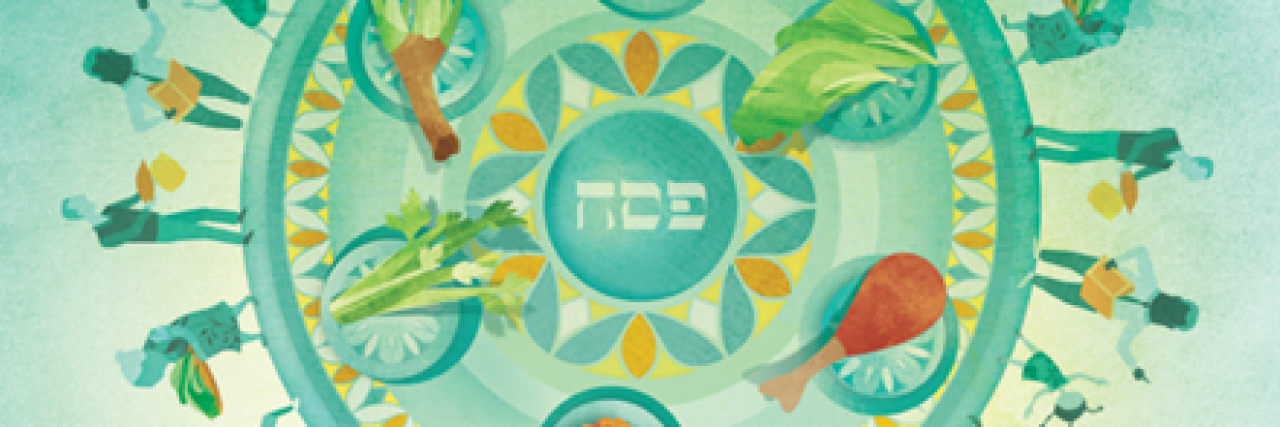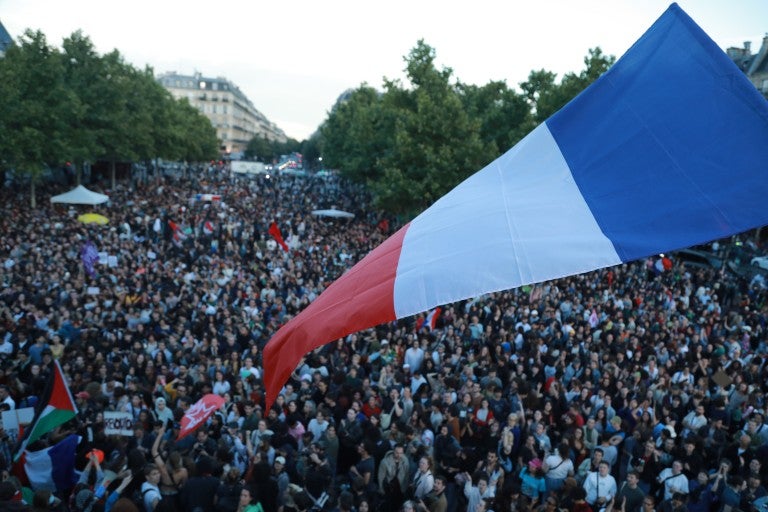April 4, 2021
Amid a global pandemic and a historic shift in relations between Arab nations and Israel, American Jewish Committee continued its tradition of inviting ambassadors, diplomats, and local leaders to Passover Seders around the world. Guests met virtually to break matza (unleavened bread), to celebrate new friendships with Israel that emerged this year, and to show solidarity with those who faced an especially challenging time.
From special recitations of parts of the Haggadah to heartfelt words from first-time and unexpected guests, here are five powerful moments from AJC’s Passover celebrations.
- A Survivor Who Marched With Dr. King
Marian Turski, 95, Poland’s best known living Holocaust survivor, surprised the more than seventy guests at the end of AJC Central Europe’s Virtual Diplomatic Seder, led by Hungary’s Chief Rabbi Róbert Frölich.
Turski, who was liberated from the Buchenwald concentration camp in 1945 and later marched for civil rights with Rev. Martin Luther King Jr., pointed out that our symbolic Egypt today is more than physical slavery.
Contemporary slavery, Turski said, includes prejudice and bigotry that discourages humans from being true to themselves. It applies to the struggles of women, the LGBTQ community, the Black Lives Matter movement, and young European Jews who are suddenly rediscovering that generations of their family hid that they were Jewish. He added that the quest for liberty demands empathy.
“In these difficult times we have to be full of empathy and understand ‘Who is the other man?’” Turski said. “Even if we don’t agree with his religion, with his mentality, with his way of behavior, he’s still also a human being.
Seder guests also heard greetings from the Polish President’s Chancellery and the Hungarian Prime Minister’s office.
- What’s Matzah in Irish? The Four Questions Recited in Eight Languages by Diplomats from Around the World
AJC Atlanta Director Dov Wilker shared a family tradition with the Atlanta-based Consuls General by inviting them to recite in their mother tongues the “Ma Nishtanah,” or Four Questions of Passover. At Wilker’s home growing up, they used Haggadot at the Passover table in different languages.
“You had to read whatever was written whether it was in Dutch, English, Hebrew, or Spanish,” he said.
In Atlanta, eight Consuls General recited the “Ma Nishtanah” in English, Spanish, Portuguese, Hebrew, Irish, Dutch, Japanese, and German.
The traditional recitation of the Four Questions – “Why we eat matza? Why do we eat bitter herbs? Why do we dip our vegetables twice? Why do we recline?” – is intended to help children grasp the meaning of Passover and encourage their curiosity. The custom serves the same purpose for non-Jews, Wilker said. It both answers and encourages questions.
“The story is a uniquely Jewish story,” he said, “but it resonates with people around the world in all countries and in all languages.”
Watch all of the videos from Atlanta-based Consuls General here.
- The Ambassador and the Princess: AJC Toasts Israel’s Newest Friends
AJC welcomed new friends to the Passover Seder table this year, including ambassadors from countries that recently formalized ties with Israel.
Ambassador Jamal Al Rowaiei, Bahrain’s ambassador to the United Nations, reminded AJC Westchester/Fairfield Seder participants that the Kingdom of Bahrain has historically welcomed all faiths. In addition to a Hindu temple and Christian church, the Muslim country allowed the first synagogue in the Arabian Gulf to open nearly a century ago.
“The pandemic has made us more aware that we are one human family, interconnected and interdependent,” Al Rowaiei said.
In Washington, D.C. and Dallas, Her Highness Princess Lalla Joumala Alaoui, Ambassador of Morocco to the United States, said that, as the world battles an invisible enemy, the values of the Seder have never been so meaningful.
“It is also a solace that in these turbulent times the bright light of hope and peace have shone through in our region thanks to the decision by a number of countries including Morocco to normalize diplomatic relations with Israel,” she said, adding that it’s “a wonderful note of a promising future in the Middle East.”
- Chicago Mayor Lori Lightfoot Joyfully Sings Dayenu!
Diplomacy doesn’t have to be an international or somber affair.
Mayors and other local government leaders joined AJC Virtual Seders around the country, ate matza, and sang along. In Chicago, Mayor Lori Lightfoot didn’t just make a brief appearance. She logged on for more than an hour and belted out a song at the top of her lungs.
After Seder attendees heard the story of the Exodus, they all unmuted themselves for the traditional upbeat and off-key verses of “Dayenu” or “Enough.” The Passover song praises God for taking the Jewish people out of slavery, bestowing the Torah, and giving them Shabbat. Had God only given one of those gifts, the lyrics say, it would have still been enough, or dayenu in Hebrew.
Participants couldn’t help but smile as, amid the cacophony of voices, Lightfoot’s rose above the rest.
- Rabbi Spices up AJC’s First Brazilian Seder
After Brazil’s Ambassador to the U.S. Nelson Forster attended the AJC Passover Seder in Washington, D.C. he thanked AJC, ending with the phrase “Next Year in Jerusalem.”
But this year in Brazil, AJC hosted its first Passover Seder with the nation’s Jewish federation known as CONIB, or Confederação Israelita do Brasil.
More than a dozen diplomats joined other a dozen other guests for a series of virtual remarks and readings in Portuguese and English. The atmosphere was initially formal, solemn, almost studious.
After a thought-provoking explanation of Passover by Rabbi Noam Marans, AJC’s Director of Interreligious Affairs, Brazilian Rabbi Sany Sonnenreich, known as “Rav Sany,” suddenly broke into a soul-stirring rendition of “Ma Nishtanah.” The unexpected and dramatic turn broke the ice and opened the doors to the rituals of the Seder.
“It touched people’s souls,” said Muriel Asseraf, AJC’s representative in Sao Paulo, who helped organize the virtual event. “This reminded us that we’re all on the same page. We’re all human beings who are going to learn something together."

